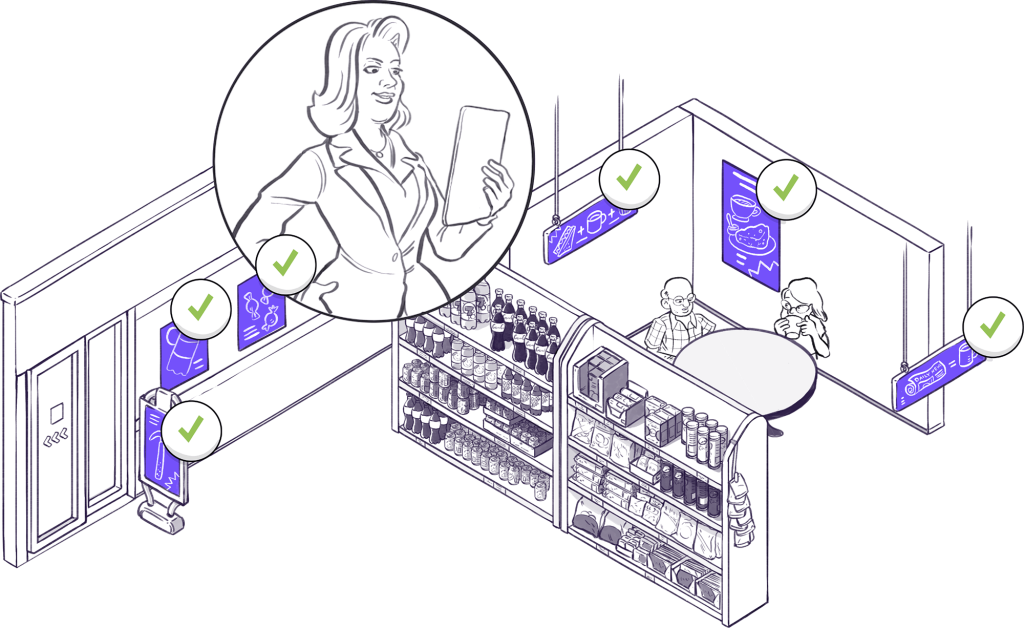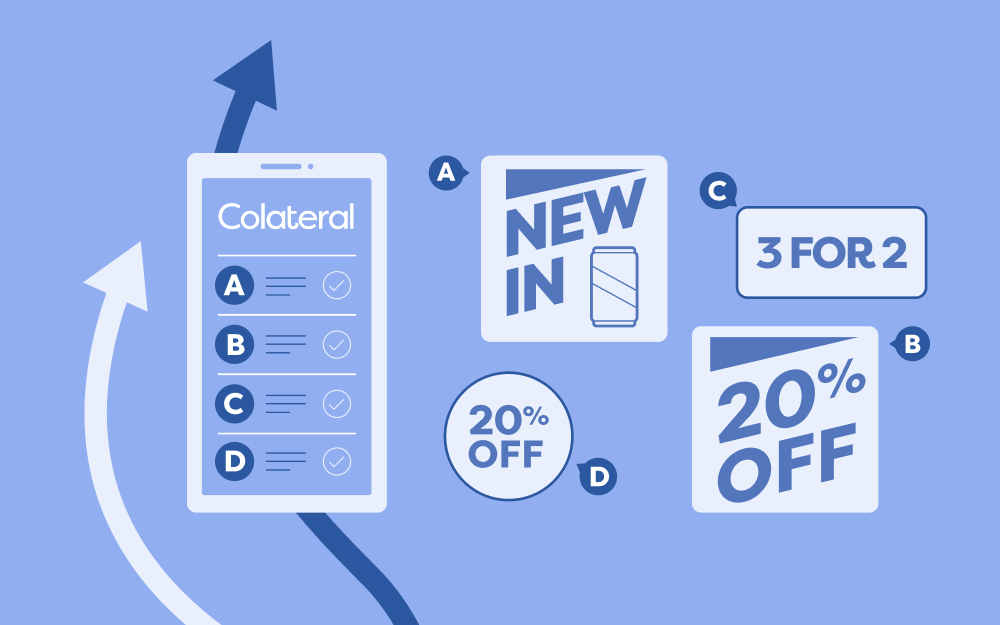How much does a retail audit cost?


Retail audits are used to collect valuable information about your store estate and the effectiveness of your store operations – but how much do they cost? This article answers all your retail audit pricing questions so you can decide the best – and most cost-effective – way to approach an audit in your retail business.
External retail auditors can charge £500+ per store visit. Solution providers may charge from as little as £15+ per user per month for something basic to £400+ a month for comprehensive packages. Manual in-house audits, without any technology, cost the time it takes for retail staff to complete them.
While that gives you a basic idea of pricing, there’s a lot more to consider when it comes to selecting the right way to conduct a retail audit in your organisation. And, how to get the most out of any retail audit you complete.
Retail audits can be conducted in three ways, in-house by retail teams manually (without technology), with auditing technology (solution providers) or by third-party auditors. There is a fourth option, which is using a solution provider alongside third-party auditors, but not all solution providers and auditors will be able to offer this. Here’s a breakdown of your audit options:
| Audit Options | Method | Cost | Pros | Cons |
|---|---|---|---|---|
| Manual In-house Audit |
Paper-based questionnaires completed by store staff
Data manually entered into spreadsheets / shared documents |
Free other than the cost of staff resources |
Lowest cost option
Flexible – data can be collected regularly / when required Staff have the best understanding of their own store |
Error-prone
Forms can easily get lost / damaged Manual data entry into spreadsheets is very time consuming |
| Auditing Technology / Solution Provider |
Purpose-built technology used by store staff to collect data (usually in an app)
Can be used by head office to plan the audit (depending on the provider) Can also be used to maintain and analyse the data (depending on the provider) |
£20+ per user per month for something very basic
£400+ a month for more comprehensive packages |
Costs can be kept low
Retailer has complete control Should be easy for store teams to complete (provider dependent) Flexible / reactive – data can be collected regularly or when required Data is returned to head office instantly Data can be collected in different formats, ie photos/video Staff have the best understanding of their own store Added benefits / technology, ie data storage and analysis tools |
Relies on store staff and their time/capacity to complete the audit |
| Third Party Auditor |
External auditors visit stores to complete audits
Using their own methods / technology May be able to be used in conjunction with a solution provider |
£500+ per store visit
Can do approx 4 store visits per day – distance and data volume dependent |
Professionals at auditing
Can reliably collect data quickly Accountability is with the auditor |
Usually the most expensive option
Long lead timesData is very quickly out of date Mistakes require a revisit Less control / flexibility in planning and completing audits Usually relies on auditors own technology and processes Possible security issues with a third party collecting data |
The cost of retail audits varies depending on how they are completed, the complexity of the data that needs to be collected and the size of the store estate.
Regardless of the approach you choose, there is no one-size-fits-all cost. Broadly, the cost of your retail audit is dependent on 4 criteria:
The size of your store estate, the distance between your stores and the complexity of the data you want to collect will all affect the cost.
For example, while auditing more stores will typically reduce the cost per store, the overall cost will increase. Additionally, if you have large stores with thousands of fixtures and fittings in each, then the cost will be higher. However, if you operate smaller stores with few aisles, you may be able to negotiate a lower price.
If you are working with external auditors, they may try to charge you for travel expenses incurred throughout the job. It’s important to discuss this with potential auditors upfront. If you are conducting a nationwide audit, try to work with an auditor that can deploy local auditors in each location to minimise transport and hotel costs.
Overall, you are balancing the quality of the data you collect against the cost of collecting it. Additionally, the pricing we outlined earlier doesn’t consider the time it takes to plan your retail audit.
While the breadth of the retail audit you conduct will likely depend on the size, and priorities, of your organisation, a comprehensive look at all aspects of your stores is the best way to identify which areas need improvement. We recommend regular audits of:

Additionally, the frequency with which you audit your stores will impact your annual budget. Some experts recommend you audit a group of stores (15-20) every couple of months, while others suggest it’s something that should be done more exhaustively every quarter. We find that retailers thrive when they have a constant stream of information about store operations provided by their store teams using auditing technology.
While there’s no set rule, without reliable, up-to-date information about your stores, things can get missed, problems go unresolved, and customer experiences and sales can suffer.
When you receive regular feedback from (or about) stores, you can react to changes and make improvements instantly. And, when any issues arise, you can take corrective action before they impact sales. When looking at the cost of retail audits, it’s worth taking into account that with the right approach, the opportunity to make cost savings and uncover opportunities to increase sales is quite substantial.
So, while it may seem like a big upfront cost, a constant stream of data can save you money over the year.
When weighing up the cost versus benefits of retail audits, another key consideration is how long the data you collect will be useful. One big disadvantage of using external auditors to conduct retail audits is that the information is only accurate immediately after the audit. This can be helpful if you want a snapshot of what is happening in your stores at any given time. But, your data will rapidly become outdated and inaccurate.
A recent survey of 225 multi-location retailers revealed that 97% of organisations would like to enable store teams to conduct online audits via mobile app, which would then automatically update your master database.
Auditing technology used independently by you, the retailer (rather than alongside external auditors), allows you to be much more flexible with the way you collect data from your stores. You can use Colateral, for example, to constantly gather information from your store teams so your store profiles are never out of date.
If your store teams conduct the audit using purpose-built software, they will already know your locations really well. They also have the incentive to complete the audit accurately as it makes their job of installing marketing collateral easier. Additionally, in-store staff can complete the audit while they are working, on an ad-hoc basis, rather than all in one go like with a one-off external audit.
However, if you want the audit completed in a certain time frame, it’s important to consider how much time your store staff will be able to allocate to auditing. You may want to organise additional staffing.
Before conducting your audit, you will need to consider where the information that you collect will be stored and how it will be utilised.
Retail audits can be costly and time-consuming, so however you conduct them, it’s vital that your data is easily accessible and able to provide actionable insights immediately.
Auditing technology can have the added benefit of being able to provide tools to both maintain and analyse your data. This helps you to streamline the whole auditing process from planning, to auditing to analysis.

Overall, the costs of different types of retail audits vary substantially, but there are many other factors to consider alongside the price. From the cost savings you may make by rapidly resolving in-store issues to the opportunities you might uncover from more regular auditing, choosing the right approach for your organisation will ensure your stores are operating correctly and driving performance.
Colateral allows you to create bespoke questionnaires and request quantitative and qualitative data and photos from your stores. You can use your store staff’s expertise, and all the data can be fed straight back into our platform for detailed store profiling, marketing optimisation and analysis.
To learn more about how we can help you to audit your stores get in touch with our team.
To receive weekly in-store marketing insights like this direct to your inbox, subscribe to our mailing list.
 Thought Leadership
Thought Leadership
We work with a lot of retail marketers. And usually, when we speak to them,...
 Thought Leadership
Thought Leadership
A physical retail operation is a hive of activity. It combines shopper psychology with store...